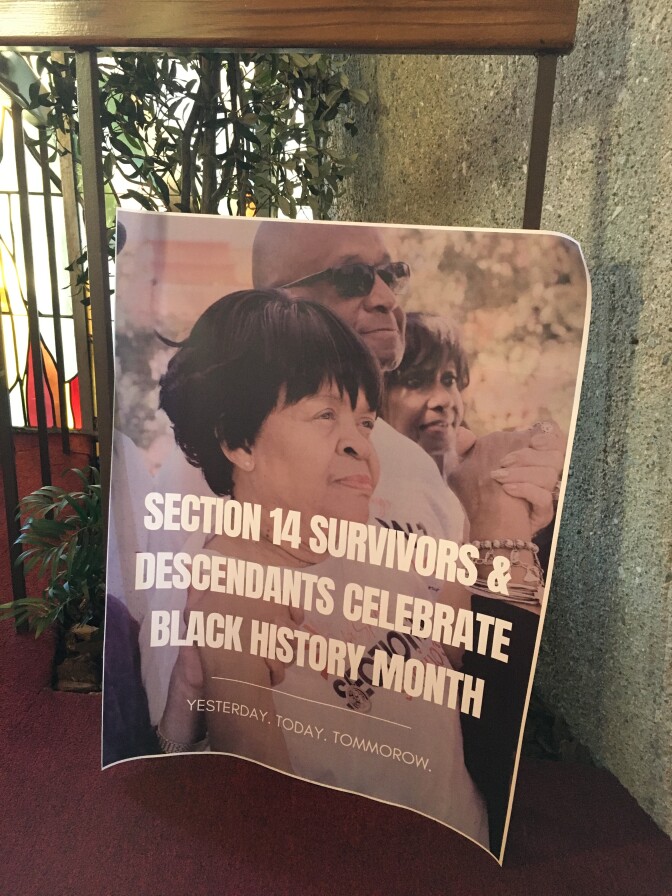This story is free to read because readers choose to support LAist. If you find value in independent local reporting, make a donation to power our newsroom today.
Introducing The Queer LA Project. And Other Headlines.

It all started from a place of pain. Caitlin Hernández, our L.A. Explained reporter, remembered the hurt they felt after the Club Q mass shooting in Colorado Springs in 2022. Five people were killed, and 25 others were injured in the attack. It was a place known for LGBTQ+ people to enjoy drag shows, parties and community. But that attack, along with the mass shooting at the Pulse Nightclub in Orlando, Florida six years ago, changed how LGBTQ+ people viewed their safe spaces.
Focusing On Queer LA Stories of Joy, Creativity And The Arts
About How to LA Newsletter
This is the web version of our How To LA newsletter. Sign up here to get this newsletter sent to your inbox each weekday morning
Even though those events happened outside of California’s “liberal paradise,” those in the LGBTQ+ community in L.A. still feel the need to protest against laws that don’t protect them everywhere.
All of this inspired Caitlin to do something more for their LGBTQ+ peers in Greater L.A. and focus on stories of joy, creativity and the arts instead of the distressing news that is often directed at this community. Thus, a new LAist project called Queer L.A. was born. Caitlin kicks it off with their own story of coming out and discovering their moments of queer joy. They are seeking your stories, too. Every Tuesday through Pride month in June — and for a year after that — LAist will publish a story centered around LGBTQ+ culture, and offer solutions to problems happening around us. Check out Caitlin’s first story here and check back every Tuesday for more.
As always, stay happy and healthy, folks. There’s more news below — just keep reading.
More News
(After you stop hitting snooze)
- A strike of TV and film writers could soon be underway. Here’s a list of picket line locations in Los Angeles and New York (Deadline). For more on how we got here, read my colleague John Horn’s report and let us know: how could the Writers Guild of America strike affect you? Please fill this out!
- Bring out your rain gear and coats (again), Angelenos. It’s gonna be a little chilly this week and we’re going to see some light, scattered drizzle throughout SoCal.
- Single use plastics are now officially banned in restaurants in unincorporated areas of L.A. County. Sale of styrofoam products is also banned. The ordinance went into effect yesterday.
- Thousands of fast food workers in L.A. County are experiencing homelessness, according to a new report from the Economic Roundtable. There are 10,120 unhoused fast food workers across the state with 3,595 living here, and the researchers believes this is a conservative estimate.
- The burrowing owls of Southern California have a huge problem: the species has been declining for decades. My colleague Jacob Margolis has more information on why this owl population has been declining.
- A statewide hotline launched this week that aims to help support the reporting of hate crime incidents. It’s set up to take reports from callers in 200 different languages.
- There’s a few new bipartisan bills that seek to address fentanyl overdose deaths with California’s public school students. EdSource’s Carolyn Jones has more on what these bills contain and how it could impact how students learn about drugs in school.
- A California bill on social media regulation would hold companies like Instagram and TikTok legally accountable for the content they serve up to young people that could lead to addictive behaviors, like eating disorders, or help facilitate ways to buy controlled substances or otherwise do harm to themselves. CalMatters’ Grayce Gedye has more.
- There’s a new documentary out about musician Little Richard that recognizes his contributions to rock & roll as a Black, queer trailblazer. Little Richard: I Am Everything is in limited release.
*At LAist we will always bring you the news freely, but occasionally we do include links to other publications that may be behind a paywall. Thank you for understanding!
Wait! One More Thing...
A Stumbling Block In Palm Springs Reparations Plans

Last month, I told you about how Black and Latino families were fighting for reparations after the Palm Springs government evicted them from the Section 14 neighborhood in the 1950s and 60s. Well, last week, the Palm Springs City Council decided not to move forward with a reparations plan for these mass evictions, citing cost and other reasons. The lawyer representing these families vowed to keep fighting.
My colleague Leslie Berestein Rojas wrote about the city council’s concerns about the contract, and how the evicted residents and their descendants were “offended” by its vote. You can read more here.
Help Us Cover Your Community
Got something you’ve always wanted to know about Southern California and the people who call it home? Is there an issue you want us to cover? Ask us anything.
Have a tip about news on which we should dig deeper? Let us know.







